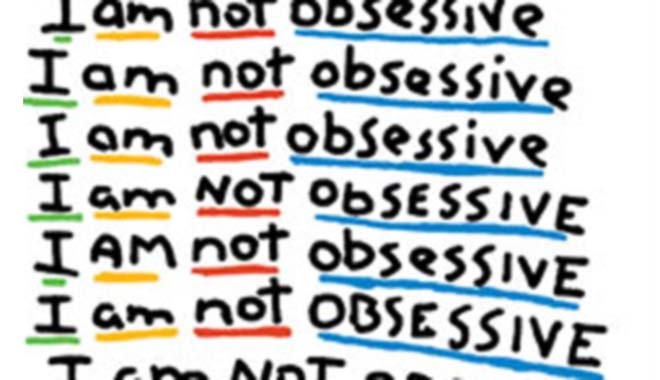

It usually begins with ‘psychoeducation’. As Dr Abdul Shakoor, Professor and Head of Department of Psychiatry, Shaikh Zayed Medical Complex, Lahore puts it, "Since a lot of [mental] patients we receive on a daily basis have little or no clue about their condition, which is only adding to their anxiety, we need to educate them about it before we launch them into a module of treatment. We cannot just rush them into it."
Psychoeducation applies to a wide spectrum of patients, depending on their mental and/or physical age, their family history, home environment and a lot of other factors, but it helps especially in a country like Pakistan where "most of the patients with OCD are coming from uneducated and rural backgrounds" -- to quote Ambreen Ali, a clinical psychologist, educational counsellor, and speech therapist, based in Lahore.
Traditionally, a psychiatrist provides the first line of treatment. He must, at the very outset, diagnose a patient’s ailment while ruling out any physical causes of it. He then "decides a suitable treatment plan for the patient," says Dr Shakoor.
‘Suitable’ is the key word here, since there is no scientific formula to determine a particular kind of treatment for an individual psychiatric patient. "The decision is made on the basis of a clinical assessment."
There are two kinds of treatment for an OCD patient -- pharmacotherapy (drug-based treatment) and psychotherapy (counselling and therapy sessions). Generally, a combination of both is recommended, which means involving both the psychiatrist as well as the clinical psychologist who must collaborate at some level as a team. In some cases, a licensed social health worker is also part of the setup and helps by studying the stress factors in the patient’s home/workplace etc., and offering advice.
The medicines include a range of Selective Serotonin Reuptake Inhibitors (SSRIs) such as Prozac, Zoloft, Celexa and Praxil, commonly called anti-depressants or anti-anxiety pills. These work by blocking a receptor in the brain that absorbs the mood-boosting chemical called Serotonin.
"Since OCD is a kind of an anxiety disorder, the SSRIs are a big help," says Dr Shakoor.
He also calls these as "fairly safe medicines," having minimal side effects.
Therapy mostly only follows. As Ambreen Ali says, "For a [therapy] session, the patients ought to be in a state of mind where they are able to make some sort of intelligible communication [with the therapist]. So we recommend seeing a psychiatrist in the first place."
Unlike the psychologist, the psychiatrist is authorised to prescribe medicines. He is also trained in primary principles of psychotherapy, though he may not be an expert at it, which is where the psychologist or behaviour therapist steps in.
OCD is considered a chronic illness and, hence, its treatment entails going back to the therapist/psychiatrist over and over, for months or even longer. The patients may see it as a liability. Dr Shakoor makes a mention of patients who "dread medicines and request for a therapy instead. Conversely, there are people who would rather go for medicines.
"The pattern of OCD is such that it is naturally existent most of the time but its intensity keeps varying. This means changing the dose levels or frequency of therapy sessions accordingly."
There are some rare treatments also, which are given to the most resistant cases. For instance, Risperidone, essentially not an anti-obsessional drug, is prescribed in cases where OCD has become so severe it is bordering on psychosis.
"Such patients develop symptoms of delusions and/or hallucinations and the level of their functionality has dropped to the point of helplessness," says Dr Shakoor.
Psychosurgery also comes in handy. But, again, it is applied very selectively. It is only a refinement on the conventional open-skull surgery which has long been abandoned in most countries of the world because of its serious side effects.
The improved method involves using Gama knife to implant certain seeds (or radioactive isotopes) in the brain that can destroy the circuits producing abnormal or obsessional thoughts.
Dr Shakoor is not hesitant to say the success ratio of psychosurgery is "very low. The patient is but partially cured. It has also negative side effects."
Eventually, as in most mental ailments, there is no one definite treatment of OCD which can completely cure the patient. But, as Dr Shakoor says, medicines and psychotherapy can help lessen the suffering of the patient and restore his functional capacity to a vast degree.